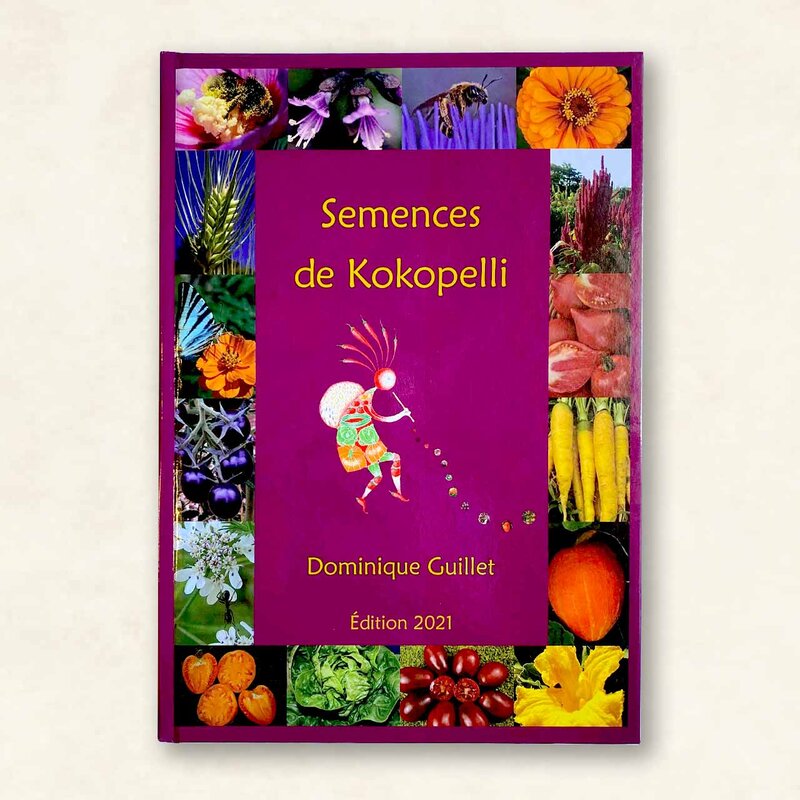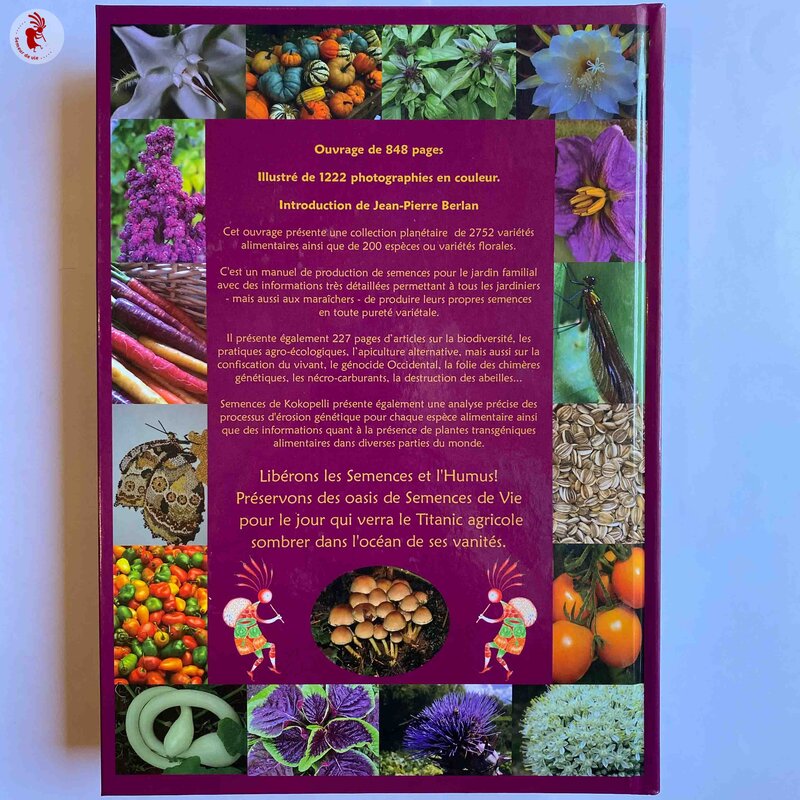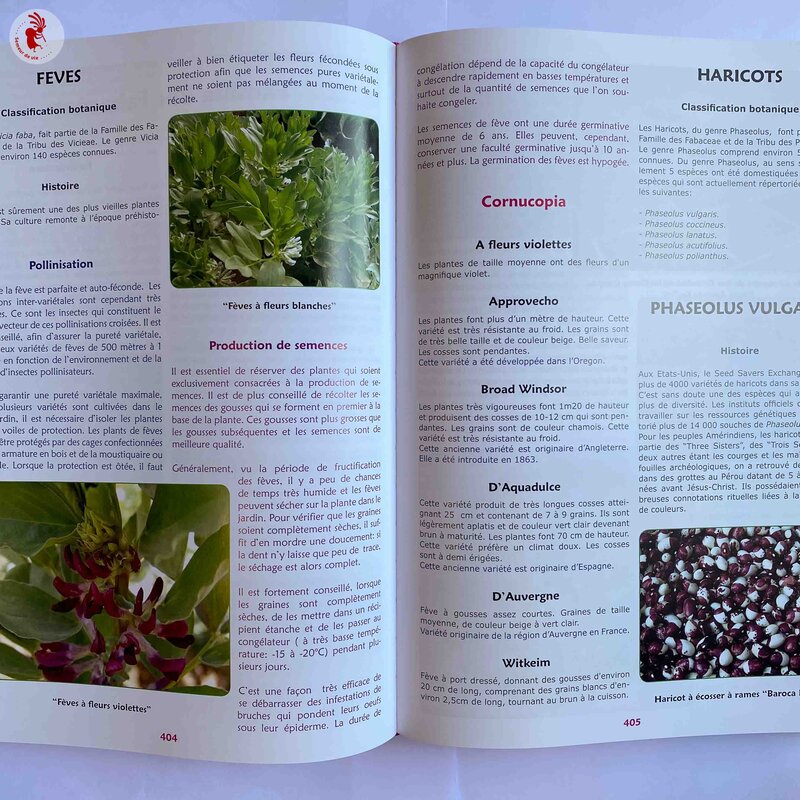Kokopelli seeds: 18th edition
This 18th edition still contains 848 pages and 1300 photos, but is completely identical to the 17th edition.
Introduction by Jean-Pierre Berlan, former INRA research director.
This 18th "2021" edition of 848 pages features, first and foremost, 227 pages of articles on food biodiversity, agro-ecology, alternative beekeeping, the recovery of covolution with Mother Earth, but also on the confiscation of living organisms, the madness of genetic chimeras, agricultural nuisances such as national catalogs of varieties, the sham of neothe imposture of biofuels, the disappearance of honeybees, the desertification of the planet, the deception of "no-till" farming practices, the primordial problem of water, the imposture of "anthropogenic" global warminganthropogenic" global warming, the confiscation of medicinal plants, the scandal of the ban on sacred and entheogenic plants, the radioactive pollution of the planetary food chain following Fukushima...
"Semences de Kokopelli" is a 621-page gardening and seed production manual for the home garden, with detailed information enabling all gardeners and market gardeners to produce their own seeds with complete varietal purity. "Semences de Kokopelli" also presents a precise analysis of the processes of genetic erosion for each food species, as well as recent information on the presence of transgenic food plants in various parts of the world. The book presents a global collection of 2952 varieties and species, mainly for food but also including medicinal and ornamental plants from various continents.
For each vegetable, condiment or grain plant, "Semences de Kokopelli" presents a number of general sections: botanical classification, history, nutrition and gardening tips. It then presents two headings linked to plant reproduction - "pollination" and "seed production" - which characterize, in the detail, types of pollination, isolation distances and seed production techniques, with advice on cleaning, sieving, drying and storing seeds. For gardeners wishing to create their own varieties, a "variety creation" section is presented for certain species.
You'll find over 600 varieties of tomato, 400 varieties of sweet and hot peppers, over 50 varieties of eggplanteggplants, 250 varieties of squash, 80 varieties of melons, 130 varieties of lettuce and many other vegetables. Each variety is described with its own specific characteristics, as well as a wealth of information on its historical origins.
For every book ordered, you'll receive 3 free seed packets.












